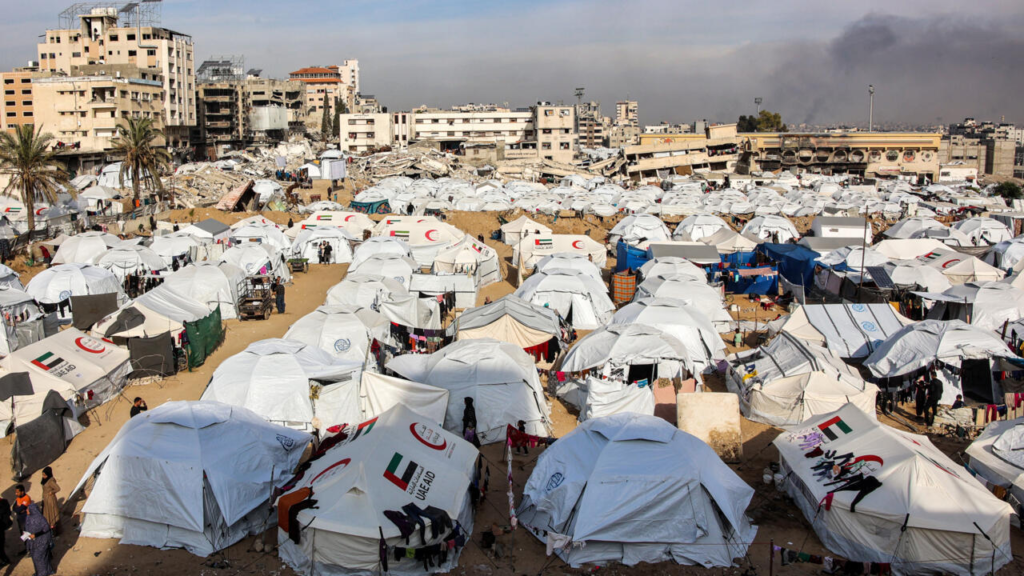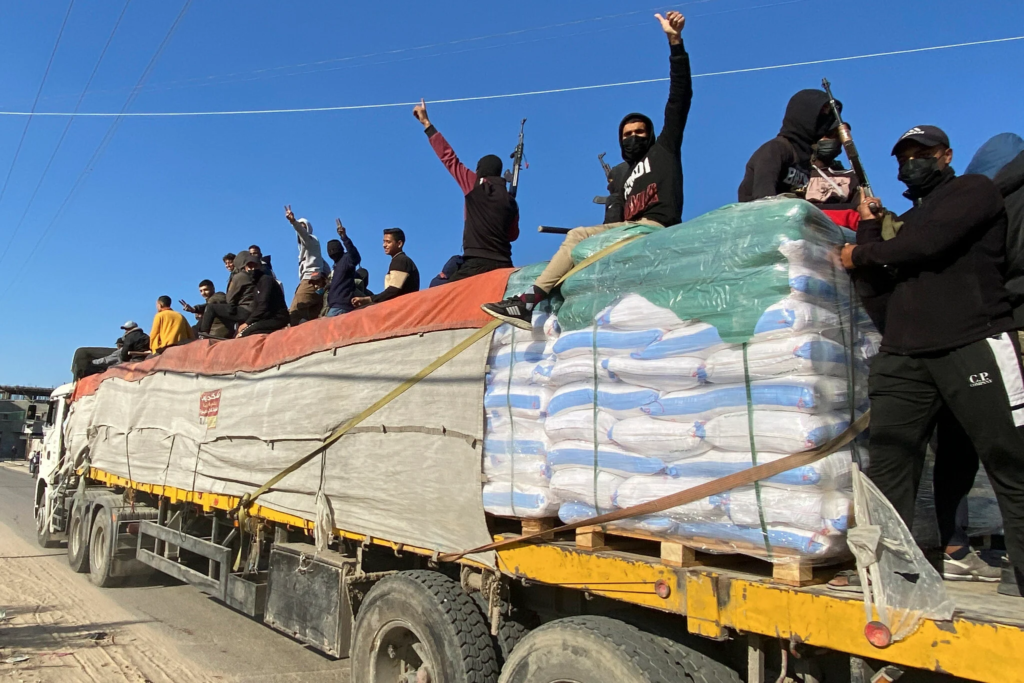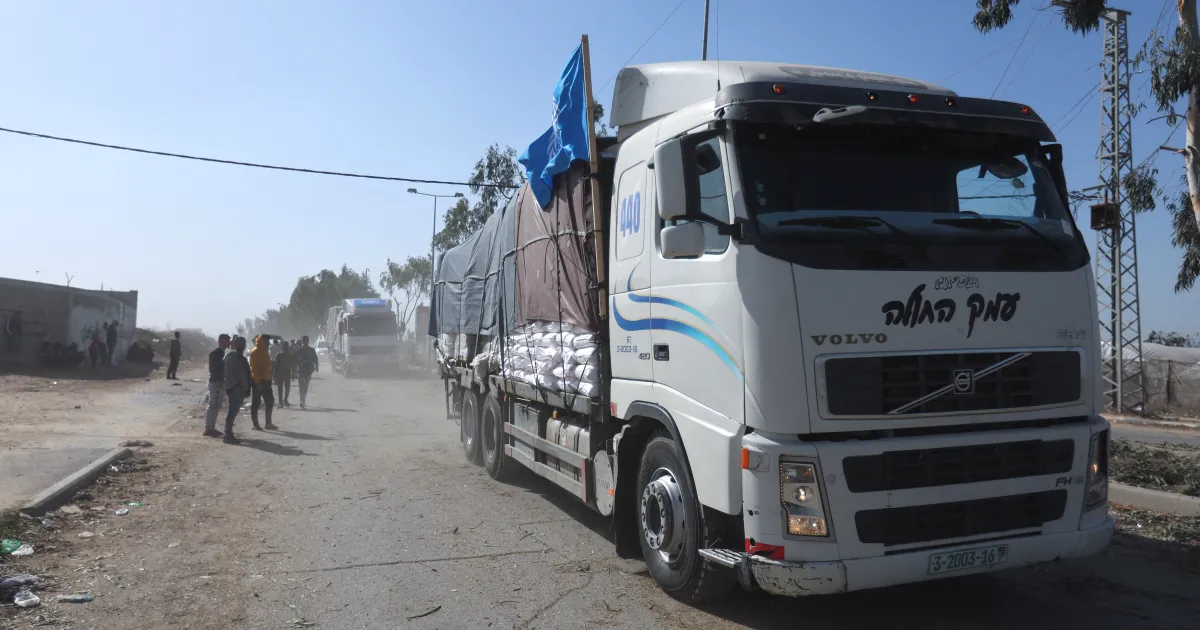As the humanitarian crisis in Gaza escalates, a troubling report by Oxfam highlights the dire situation faced by civilians in northern Gaza.
Since October 2024, only 12 trucks have managed to deliver essential aid, including food and water, to the region. This revelation underscores the severity of the ongoing blockade imposed by Israel and the widespread suffering of Palestinian civilians.
The limited access to aid has left thousands of people without basic necessities, deepening the humanitarian disaster in an already besieged region.
Humanitarian Crisis Deepens: The Struggles of Aid Delivery
The Gaza Strip, already struggling with limited resources and a fragile infrastructure, has been facing unprecedented challenges since October 2024, when Israel intensified its bombardment of the region.
According to Oxfam, the global humanitarian organization, out of 34 trucks permitted to enter the North Gaza Governorate in the last two and a half months, only 12 were able to distribute aid to those in need.
The delays and systematic obstructions by the Israeli military have contributed to this alarming situation. While some trucks made it through, many deliveries were disrupted, and even after reaching shelters, some of the food and water supplies were destroyed due to subsequent airstrikes.
The situation is compounded by the fact that the blockade has made it extremely difficult for aid organizations to reach those in desperate need. As reported by Oxfam, many international groups, including Oxfam itself, have been continually prevented from delivering life-saving aid since October 6, 2024.
The blockade has left countless Palestinians trapped in their homes and shelters without adequate food, water, and medical supplies. Even as international organizations have been tirelessly calling for humanitarian access, the lack of sufficient aid deliveries has led to further suffering and an exacerbation of the crisis.

One of the most concerning aspects of the situation is the widespread destruction of shelters where civilians have sought refuge. Oxfam reported instances where, despite the successful delivery of aid, shelters were shelled by Israeli forces within hours.
In one tragic example, three shelters that had just received vital supplies were targeted by airstrikes, leaving many displaced people once again without any support. This pattern of destruction of civilian infrastructure and aid supplies has created an environment where vulnerable populations are left exposed to further violence and deprivation.
The Human Toll: Thousands of Civilians Left Without Aid
The impact of these delays and restrictions on the civilian population has been devastating. According to Oxfam, thousands of people are still cut off from vital supplies in northern Gaza, and with humanitarian access blocked, it is impossible to ascertain the exact number of individuals affected.
The situation has reached a point where humanitarian organizations are receiving desperate calls from people trapped in their homes or shelters, reporting that they have completely run out of food and water.
The humanitarian crisis in Gaza is not limited to food shortages. Access to clean water has been severely restricted, with reports indicating that Israeli authorities have deliberately curtailed water access in Gaza.

Human Rights Watch has described these efforts as systematic, with the consequences being catastrophic for the population. Thousands of deaths are believed to have occurred as a result of the water shortages, and the situation is expected to worsen if access to basic necessities is not restored.
The combination of restricted aid deliveries, the destruction of infrastructure, and the lack of basic supplies has created a perfect storm of suffering for civilians in Gaza.
With the ongoing conflict, people are not only facing the immediate threat of violence but also the long-term consequences of living without access to food, clean water, and medical care. This dire situation highlights the urgent need for international intervention to ensure that humanitarian aid can reach those who need it the most.
The Need for Immediate Action and International Accountability
The international community has been vocal about the need to address the humanitarian crisis in Gaza, but Oxfam’s report reveals the stark reality on the ground.
The restrictions imposed by Israel on the delivery of aid are not only a violation of international law but also a clear example of the systematic cruelty faced by civilians in the region. While Israel defends its actions as part of its military operations, the consequences for innocent civilians are catastrophic.
The international community must hold all parties accountable for their actions and ensure that aid reaches those in need. The continued blockade and obstruction of humanitarian access are not only causing unnecessary suffering but also undermining the principles of human rights and humanitarian law.
In addition to ensuring that aid can flow into Gaza, efforts must be made to protect civilian infrastructure and ensure that shelters are not targeted by military strikes.

At the same time, the global community must continue to push for a political solution to the ongoing conflict. While humanitarian aid is critical in alleviating immediate suffering, it is essential to address the root causes of the conflict and work toward a long-term resolution.
Only through dialogue, diplomacy, and the recognition of human rights can a sustainable peace be achieved in Gaza and the wider region.
The humanitarian crisis in Gaza remains at a critical juncture, with only a small fraction of the aid needed to alleviate the suffering reaching those in need.
Oxfam’s report is a stark reminder of the urgent need for international intervention to address the ongoing blockade and ensure that life-saving aid can reach civilians trapped in the conflict. As the situation worsens, the world must act quickly to provide relief and work toward a lasting peace.

